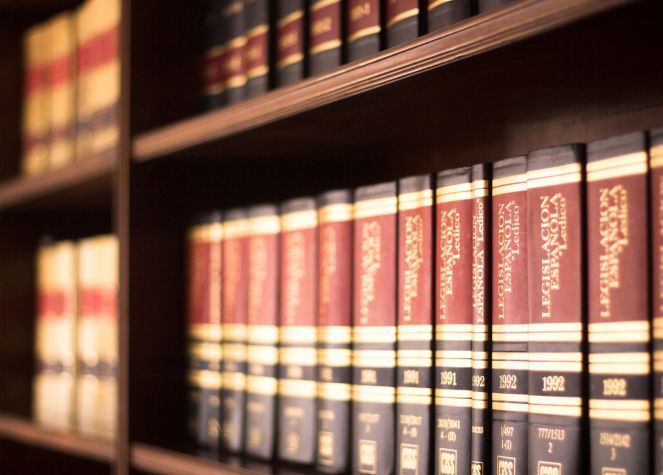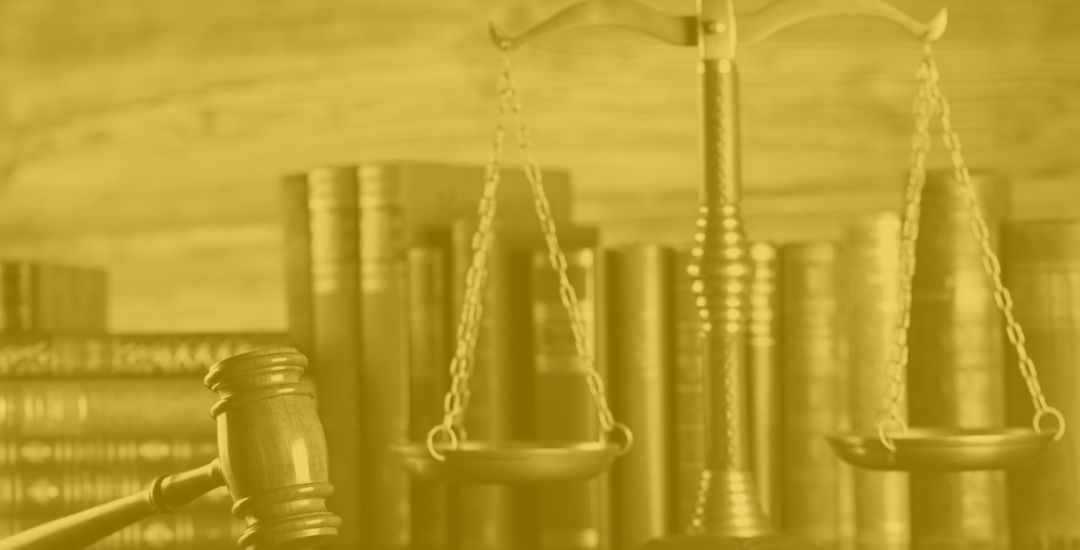Personal Injury Legal Glossary

At Lloyd & Lloyd, we know that navigating a personal injury or insurance claim can feel overwhelming. You likely have questions about the legal process, what to expect, and how to protect your rights along the way. We’ve compiled answers to some of the most commonly asked questions to help guide you through this challenging time and provide clarity on important topics.
Whether you’re seeking information on filing a claim, understanding damages, or knowing what steps to take after an accident, our FAQ page offers insights to get you started. For personalized guidance and support, please don’t hesitate to reach out to our experienced team—we’re here to help every step of the way.
All definitions are sourced from U.S. Courts definitions via Justia.com (1), which is more in laymen’s terms, along with definitions and citations from Black’s Law Dictionary (2), which is more formal and full of legalese. Cornell Law School’s legal dictionary and the Oxford English Language Dictionary are sometimes cited in lieu of Black’s dictionary.
Assumption of Risk
- A doctrine under which a person may not recover for an injury received when he has voluntarily exposed himself to a known danger.
- A term or condition in a contract of employment, either express or implied from the circumstances of the employment, by which the employee agrees that dangers of injury ordinarily or obviously incident to the discharge of his duty in the particular employment shall be at his own risk.
Comparative Negligence
- The rule under which negligence is measured by percentage, and damages are diminished in proportion to the amount of negligence attributable to the person seeking recovery.
- That doctrine in the law of negligence by which the negligence of the parties is compared, in the degrees of “slight,” “ordinary,” and “gross” negligence, and a recovery permitted, notwithstanding the contributory negligence of the plaintiff, when the negligence of the plaintiff is slight and the negligence of the defendant gross, but refused when the plaintiff has been guilty of a want of ordinary care, thereby contributing to his injury, or when the negligence of the defendant is not gross, but only ordinary or slight, when compared, under the circumstances of the case, with the contributory negligence of the plaintiff.
Compensatory Damages
- Money that one person must pay another to cover the cost of a wrong or injury. (See damages.)
- A pecuniary compensation or indemnity, which may be recovered in the courts by any person who has suffered loss, detriment, or injury, whether to his person, property, or rights, through the unlawful act or omission or negligence of another.
- A sum of money assessed by a jury, on finding for the plaintiff or successful party in an action, as a compensation for the injury done him by the opposite party.
- Every person who suffers detriment from the unlawful act or omission of another may recover from the person in fault a compensation therefore in money, which is called “damages.”
Contributory Negligence
- The rule of law under which an act or omission of plaintiff is a contributing cause of injury and a bar to recovery.
- Legal rule that an angry or injured complainant might have added to his own injury because of being negligent of known or obvious conditions.
Defamation
- That which tends to injure a person’s reputation. (See libel and slander.)
- The taking from one’s reputation. The offense of injuring a person’s character, fame, or reputation by false and malicious statements. The term seems to be comprehensive of both libel and slander.
Defense of Property
- Affirmative defense in criminal law or tort law where force was used to protect one’s property.
- In criminal law. The protection of one’s person or property against some injury attempted by another. The right of such protection. An excuse for the use of force in resisting an attack on the person, and especially for killing an assailant.
Fraud
- A false representation of a matter of fact which is intended to deceive another.
- Wrongful or criminal deception intended to result in financial or personal gain (Oxford).
- Insurance fraud
- Medical fraud
- Financial fraud
- Scams

Indemnity
- An obligation to provide compensation (usually money) for a loss, injury, or damage.
- A collateral contract or assurance, by which one person engages to secure another against an anticipated loss or to prevent him from being damnified by the legal consequences of an act or forbearance on the part of one of the parties or of some third person.
Intentional Tort
- Wrong perpetrated by one who intends to break the law.
- To act with the desire to produce the legally forbidden concept or purpose; acting knowing the consequence is substantially certain to occur;
- Transferred intent: If tortfeasor (defendant) is acting with intent towards 1 individual but commits a tort against a 2nd individual, that is still intent.
Joint and Several Liability
- Joint Liability: A legal doctrine that makes each of the parties who are responsible for an injury, liable for all the damages awarded in a lawsuit if the other parties responsible cannot pay.
- Several Liability: Different to a joint liability where more than one person is deemed liable. A plaintiff may initiate proceedings against only one party.
Libel
- False and malicious material that is written or published that is defamatory and hurts a person’s reputation. (Compare slander.)
- Defamatory statement published through any manner or media. If intended to simply bring contempt, disrespect, hatred, or ridicule to a person or entity it is likely a civil breach of law. However, if it causes mayhem or breach of peace, it can be a criminal breach of law. Yet, again, if the statement is newsworthy, even if defamatory, proof of benefit to the public is required to avoid criminal complaint.
Malfeasance
- Performance of an act that should not have been done at all. (Compare with misfeasance, nonfeasance.)
- The wrongful or unjust doing of some act which the doer has no right to perform, or which he has stipulated by contract not to do. It differs from “mis- feasance” and “non-feasance.”
Malpractice
- Any professional misconduct.
- improper, illegal, or negligent professional activity or treatment, especially by a medical practitioner, lawyer, or public official. (Oxford Languages)
Misfeasance
- Improper performance of an act that may have been lawfully done. (Compare malfeasance, nonfeasance.)
- a transgression, especially the wrongful exercise of lawful authority. (Oxford Languages)
Money Judgment
- A specific amount of money awarded by the court to a person as payment for damages (losses or injuries) suffered.
- A term for referring to a judgment that orders the payment of money that is owed.
Negligence
- Failure to use care which a reasonable and prudent person would use under similar circumstances.
- The omission to do something which a reasonable man, guided by those considerations which ordinarily regulate the conduct of human affairs, would do. or doing something which a prudent and reasonable man would not do. It must be determined in all cases by reference to the situation and knowledge of the parties and all the attendant circumstances.
- In its civil relation, is such an inadvertent imperfection, by a responsible human agent, In the discharge of a legal duty, as immediately produces, in an ordinary and natural sequence, a damage to another.

Nonfeasance
- Nonperformance of an act which should be performed; omission to perform a required duty or total neglect of duty.
- The neglect or failure of a person to do some act which he ought to do. The term is not generally used to denote a breach of contract, but rather the failure to perform a duty towards the public whereby some individual sustains special damage, as where a sheriff fails to execute a writ.
Personal Injury
- A kind of civil case that asks for damages for physical injury to people and/or property, or for wrongful death.
- Physical injury inflicted to a person’s body, as opposed to damage to property or reputation. (Oxford Languages)
Products Liability
- Legal responsibility of manufacturers and sellers to buyers, users, and bystanders for damages or injury
- General obligation or liability of the producer or supplier of goods and services in order to adjust for the loss associated with its utilization, such as damage of property or personal injury. Usually, the affected party need not prove that the supplier or producer was negligent as the defect is associated with the product or service.
Proximate Cause
- The last negligent act which contributes to an injury. A person generally is liable only if an injury was proximately caused by his or her action or by his or her failure to act when he or she had a duty to act.
- Also known as direct cause. The result of a direct action and cause of loss to property that sets in motion a chain of events that is unbroken and causes damage, injury and destruction with no other interference. The loss is the result of one event.
Punitive Damages
- Money award given to punish the defendant or wrongdoer.
- A sum of money assessed by a jury, on finding for the plaintiff or successful party in an action, as a compensation for the injury done him by the opposite party.
Reasonable Person
- A phrase used to denote a hypothetical person who exercises qualities of attention, knowledge; intelligence, and judgment that society requires of its members for the protection of their own interest and the interests of others.
- A legal standard applied to defendants in negligence cases to ascertain their liability. All members of the community owe a duty to act as a reasonable person in undertaking or avoiding actions with the risk to harm others. If an individual fails to act as a reasonable person and their failure injures someone, they may be liable to that person for such injuries. Whether a person met the standard of a reasonable person is often a question of fact for the jury to determine—thus leaving the determination of whether an individual acted reasonably for twelve members of the community.
Replevin
- An action for the recovery of a possession that has been wrongfully taken.
- A personal action ex delicto brought to recover possession of goods unlawfully taken, (generally, but not only, applicable to the taking of goods distrained for rent,) the validity of which taking it is the mode of contesting, if the party from whom the goods were taken wishes to have them back in specie, whereas, if he prefer to have damages instead, the validity may be contested by action of trespass or unlawful distress. The word means a redelivery to the owner of the pledge or thing taken in distress.
Slander
- Spoken defamation which tends to injure a person’s reputation. (See libel.)
- In torts. Oral defamation; the speaking of false and malicious words concerning another, whereby injury results to his reputation.
Strict Liability
- Concept applied by the courts in products liability cases that when a manufacturer presents his goods for public sale, he is representing that they are suitable for their intended use.
- Products Liability is generally considered a strict liability offense. With regard to products liability, a defendant is liable when the plaintiff proves that the product is defective, regardless of the defendant’s intent. It is irrelevant whether the manufacturer or supplier exercised great care; if there is a defect in the product that causes harm, he or she will be liable for it. (Cornell)
Tort
- A private or civil wrong or injury for which the court provides a remedy through an action for damages.
- A civil, not criminal, wrong. A negligent or intentional injury against a person or property, with the exception of breach of contract.
- A tort is an act or omission that gives rise to injury or harm to another and amounts to a civil wrong for which courts impose liability. In the context of torts, “injury” describes the invasion of any legal right, whereas “harm” describes a loss or detriment in fact that an individual suffers. (Cornell)
Tortfeasor
- A person that commits or is found guilty of a tort.
- A tortfeasor is one who commits a tort. (Cornell)
Violation
- A breach of a right, duty, or law.
- Injury; Infringement; breach of right, duty, or law.
Workers Compensation
- Insurance that employers are required to have to cover employees who get sick or injured on the job.
- Financial support provided to an injured worker covering income, medical costs, rehabilitation or death from a work injury.

